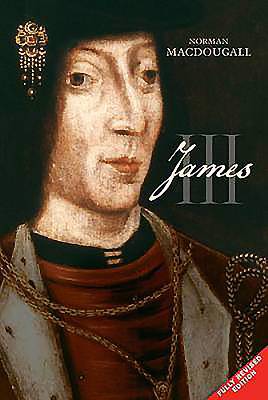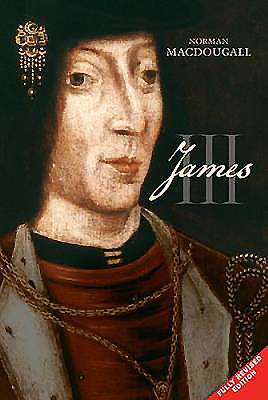
- Afhalen na 1 uur in een winkel met voorraad
- Gratis thuislevering in België vanaf € 30
- Ruim aanbod met 7 miljoen producten
- Afhalen na 1 uur in een winkel met voorraad
- Gratis thuislevering in België vanaf € 30
- Ruim aanbod met 7 miljoen producten
Zoeken
€ 56,45
+ 112 punten
Omschrijving
James III is the most enigmatic of the Stewart kings of Scotland. Variously characterised as artistic, peace-loving, morbidly suspicious, treacherous, pious, lecherous and lazy, King James was much criticised by contemporaries and later chroniclers for his failure to do his job in the manner expected of him, and particularly for his reliance on low-born favourites to the exclusion of his 'natural' counsellors, the nobility. Specific complaints included debasement of the coinage, royal hoarding of money, failure to staunch feuds and to enforce criminal justice.
Yet James III has also been seen as a major patron of the arts, as Scotland's first Renaissance king, and as the architect of an intelligent and forward-looking foreign policy. In this new study, the author explores all these areas and seeks to explain why King James was challenged by a huge rebellion in 1482, which he narrowly survived, and why he succumbed to a further rising in 1488, which placed his eldest son on the throne as James IV.
Yet James III has also been seen as a major patron of the arts, as Scotland's first Renaissance king, and as the architect of an intelligent and forward-looking foreign policy. In this new study, the author explores all these areas and seeks to explain why King James was challenged by a huge rebellion in 1482, which he narrowly survived, and why he succumbed to a further rising in 1488, which placed his eldest son on the throne as James IV.
Specificaties
Betrokkenen
- Auteur(s):
- Uitgeverij:
Inhoud
- Aantal bladzijden:
- 352
- Taal:
- Engels
- Reeks:
- Reeksnummer:
- nr. 4
Eigenschappen
- Productcode (EAN):
- 9781904607878
- Verschijningsdatum:
- 8/08/2009
- Uitvoering:
- Paperback
- Formaat:
- Trade paperback (VS)
- Afmetingen:
- 155 mm x 231 mm
- Gewicht:
- 675 g

Alleen bij Standaard Boekhandel
+ 112 punten op je klantenkaart van Standaard Boekhandel
Beoordelingen
We publiceren alleen reviews die voldoen aan de voorwaarden voor reviews. Bekijk onze voorwaarden voor reviews.











